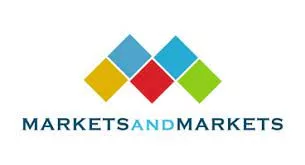Underwriters Labs and Atlas Announce Alliance
NORTHBROOK, IL - Underwriters Laboratories (UL), a third-party safety testing and certification provider, has entered into an alliance with Atlas Material Testing Technology, a leader in accelerated weathering instruments and weathering testing services. This alliance benefits both companies with increased global testing capacity and expertise in accelerated aging performance. It enables them to provide faster testing and certification turnaround time for manufacturers specializing in solar energy products.
Collaboration between the two companies has already led to shorter cycle times for some of the customers seeking the UL listing for solar modules and power systems accessory equipment. Not only are outdoor and aging tests for long-term durability a critical component for meeting safety and performance standards, but they also provide manufacturers with the data they need to demonstrate long-term durability to support warranty and performance claims. These tests reduce the costs associated with aftermarket product failures.
"Atlas is highly regarded within the industry for accelerated aging test instruments and associated outdoor and laboratory testing services, and we are happy to collaborate with them," said Jeff Smidt, Vice President and General Manager of UL's Global Energy Business. "One of the great benefits that is available through this alliance is the geographical diversity of existing and new testing sites that allows us to minimize project delays that otherwise might occur due to natural weather conditions," Smidt added. Atlas has 21 outdoor weathering sites globally, including the Atlas Solar Test Center and exposure facility in Arizona, which is a benchmark for outdoor exposure testing for conditions possessing high levels of solar radiation and elevated temperatures.
For manufacturers around the world, global market access is a vital success factor. The new collaboration will provide this service. For example, for manufacturers of photovoltaic modules in Asia, both North American and international standards must be met (UL 1703 and IEC 61730 respectively) in order to support solar equipment installations in the United States and European markets. This alliance allows both companies to significantly increase their global footprint required to support customers globally through localized test sites and highly skilled engineering talent that speaks local languages. This translates into increased efficiencies and accelerated turnaround time for existing and future projects.
Looking for a reprint of this article?
From high-res PDFs to custom plaques, order your copy today!




